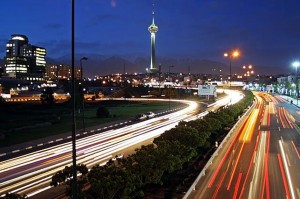Source: www.ihrb.org (Institute for Human Rights and Business)
by Bayan Towfiq1
The airwaves are still buzzing with news of the historic nuclear dealbetween six major world powers and Iran. As foreign corporations begin to consider the opportunities to do business in Iran, it is important to address pressing moral and economic concerns regarding that country’s domestic situation.
Amidst widespread and deepening human rights abuses in Iran, recent crackdowns on the Baha’i community are of particular significance, with consequences for both business and human rights.
Yet, these peaceful efforts to provide for their families and support their local economies have met with harsh resistance from the Iranian government. In October 2014, at least 80 Baha’i-owned businesses were sealed in Kerman. This April, dozens more were closed in Rafsanjan, Sari, and Kerman.
According to reports, the owners had temporarily suspended business hours in observance of a Baha’i holy day. For this reason alone, their shops were shut down by the Public Places Supervision Office, with no recourse to justice. While some businesses were able to reopen, authorities have attempted to require Baha’is to sign a pledge that they will only close their stores on recognized national (Muslim) holy days. These incidents appear to be the latest development in Iran’s continued denial of basic rights to its Baha’i population.
Meanwhile, the international community continues to adopt new postures of openness toward Iran. Following the nuclear deal, the United Nations Security Council unanimously approved a resolution in favor of lifting global economic sanctionsagainst Iran – a powerful statement of renewed business relations, which many countries could soon emulate. But this stance of openness must be paired with continued and heightened pressure on Iran for its human rights violations.
In a policy memorandum for the Council on Foreign Relations (CFR), a former US diplomat and CFR senior fellow Ray Takeyh notes: “As the United States and other countries focus on the Islamic Republic of Iran’s nuclear ambitions, it is easy to ignore the fact that Iran is also one of the world’s worst human rights violators.” He goes on to describe how “Iranians of [the] Baha’i faith are discriminated against in the job market [and] often have their businesses shuttered.” One of the policy recommendations Takeyh advances is for high-ranking US officials to speak more “openly and persistently” about Iran’s human rights record.
This is a time of transition for Iran in its relations with the rest of the world. And minorities often bear the brunt of social and political anxieties. The seven leaders of the Baha’i community remain behind bars, along with 100 other Baha’is. Moreover, Baha’is are subject to frequent arrest, arbitrary detention, raids on their property, and harassment by authorities. The upswing in Baha’i shop closings signals a worrying trend that, if unchecked, could result in further crackdowns.
Iran, in theory, has aligned itself with global norms. It has ratified international treaties and conventions protecting civil, political, and economic rights. Sadly, governments do not always fulfill their legal and ethical duties. In addition to it being the right thing to do, there are also practical reasons why Iran should include Baha’is in the economy.
First, Bahá’ís are not only entrepreneurs in Iran. They are consumers representing a large and well-educated market. Second, most Baha’i-run enterprises are small and locally sustained – key factors in economic growth and employment. Third, businesses want to operate freely and fairly. By ending arbitrary and discriminatory practices against its own citizen-entrepreneurs, the Iranian government can demonstrate to foreign corporations that it can create a climate that is hospitable to business – further enticement to companies now considering potential new markets in Iran.
The case of Baha’i businesses in Iran represents a unique opportunity. Global companies now have a chance to help the government of Iran live up to its human rights obligations. As foreign corporations begin making plans to do business in Iran, they can emphasize their values of nondiscrimination and equality, point out their own responsibility to respect human rights consistent with the UN Guiding Principles on Business and Human Rights and other international standards, and urge the Iranian government to do right by its people. And corporations can announce their intention not to discriminate against Baha’is or any other minority in Iran once they are doing business there. The private sector can help hold politicians accountable by making clear that, until Iran fully respects and protects the rights of all its citizens, including Baha’is, its reputation and economy will continue to suffer. In this way, corporations can promote better business in Iran.
1. Bayan Towfiq is the CEO and founder of Flowroute.com. He serves on the Board of Directors of SMS/800 and the Seattle Symphony Orchestra as well as the Convening Board of T4A.org. He is a recognized expert in telecom regulation, information security, and telephony.

August 13, 2015 8:09 pm
The reality on the ground is that a blood thirsty wolf does not suddenly transform into a peace loving lamb, no matter how much you feed it. Capitali$m has always ignored Human Rights all over the world as long as there is money $$$ to be made by the aggressor (in this case; Iran) and the providers / appeaser (US, the West, Large corporations, etc). Conclusion: As long as the corrupt regime of the Mullahs remain in power, the situation will only get worse for all innocent minority groups throughout Iran. This situation has been repeated many, many times throughout history with dictatorships and corrupt regimes.
Money has the final $ay above all else. Human Rights comes almost last on the priority list of both partie$ involved in the tran$$action.